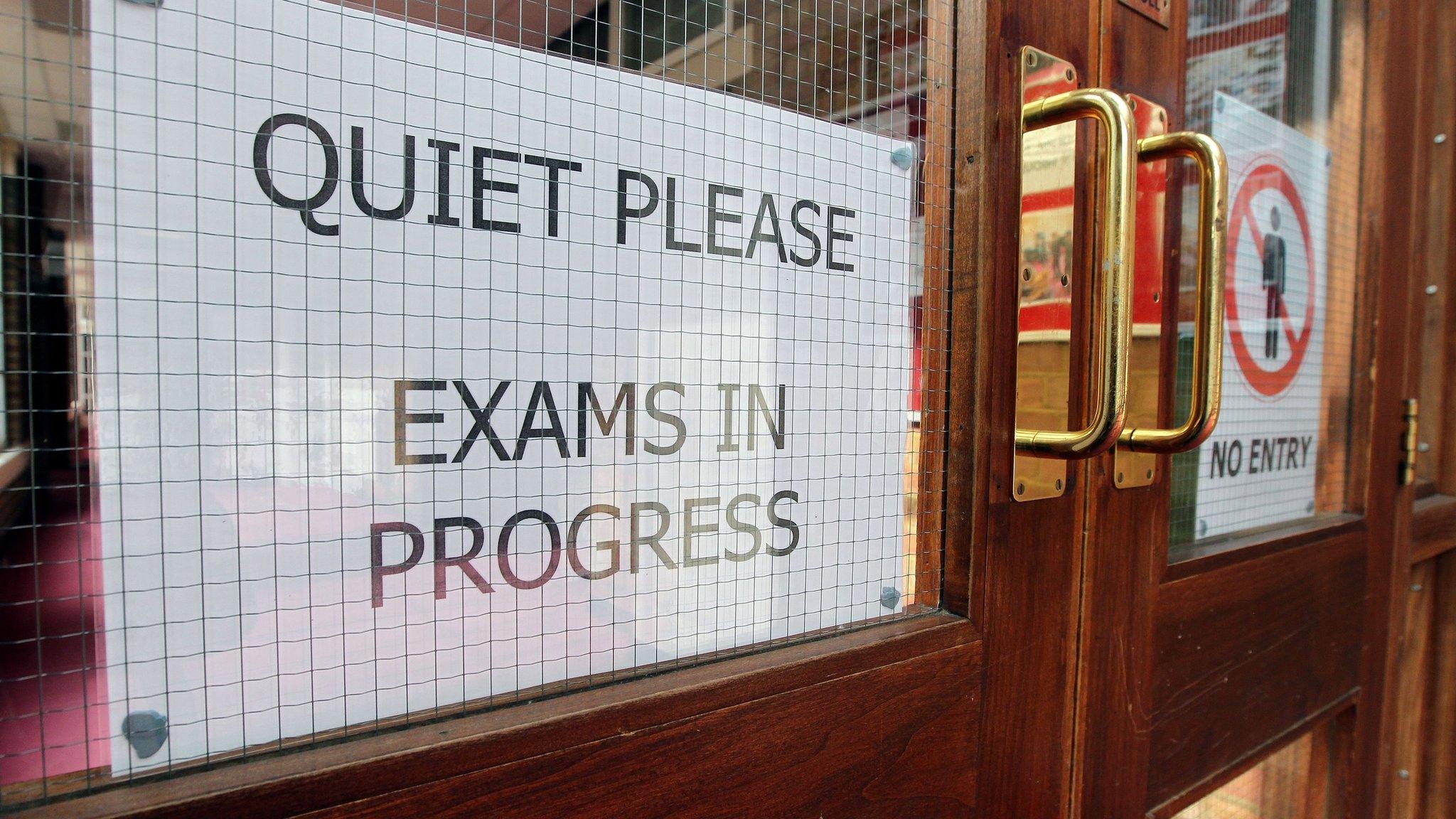Transfer test: Plans for single exam 'not fit for purpose'
- Published

Unofficial transfer tests have been used by schools since the abolition of the 11-plus in 2008
The chair of one of the transfer test providers has said proposals for a single test are "not fit for purpose".
John Mulholland, of the Association for Quality Education (AQE), strongly attacked the plans in a letter to school principals and governors.
There are two separate transfer tests in Northern Ireland.
In 2018, negotiators representing both providers agreed a draft format for a common test.
BBC News NI understands that a majority of grammar school principals have expressed support for the single test proposals during consultations.
An 11-plus exam run by the Department of Education was scrapped in 2008, external.
The AQE is the organisation responsible for one of the two separate transfer tests.
Its board oversees the organisation but is distinct from grammar school principals.
AQE is currently undertaking consultation to allow schools to make an informed decision about the future assessment platform.
The Post-Primary Transfer Consortium (PPTC) is the alternative transfer test provider.
There were over 16,000 entries to the most recent transfer tests.
'Limited information available'
Mr Mulholland said he was writing to grammar school principals and governors on behalf of the AQE board.

There are two transfer test providers in Northern Ireland - the AQE and the PPTC
He said the board was not opposed in theory to a single test but claimed they had been kept in the dark when discussions were taking place between principals representing AQE and PPTC about a joint test.
"During the two years of discussion the negotiators chose to maintain confidentiality and AQE Ltd were not appraised of developments," he said.
"Based on the very limited information available, the board are adamant that the proposal for two tests with one to count does not meet the standard which is required to combat criticism from experts who oppose the concept of academic selection."
He went on to raise concerns about the quality of the proposed common test and how it would be run and paid for.
He said the common test would be a "halfway house", which would be less reliable than the current AQE exams.
"The three-test format is key to the current assessment and the board have been convinced this approach offers the best opportunity to children, particularly to those from less advantaged backgrounds," said Mr Mulholland.
"Advice received indicates the new arrangements could be more easily manipulated by middle class parents."
'Strained relationship'
Parents pay a £50 fee to enter their child for the AQE tests unless they are eligible for free school meals.
The PPTC does not charge a fee for entrance to its test.
Mr Mulholland claimed that selective schools would pay much more towards running a common test.

The PPTC recently backed the common test proposals
"The current proposal takes the form of a compromise whereby entrants will be charged £20 with schools providing the balance, which could be in the region of £6,000-£7,000 and potentially considerably more," he wrote.
He was also critical of the PPTC test organisation, which had recently issued a statement in support of the common test proposals.
"Relationships with PPTC have been strained in the past and trust has been eroded by the recent leaking of details of ongoing discussions," he said.
The PPTC declined to comment on Mr Mulholland's letter when contacted by BBC News NI.
Mr Mulholland did acknowledge that it would ultimately be for schools to decide if a common test went ahead but he said the AQE board felt it had to make its views known.
"I reiterate that our board was and is very supportive of the concept of a unified test but does not accept that it should be adopted at any price," he concluded.
BBC News NI has been unable to contact Mr Mulholland for further comment.
- Published26 June 2018

- Published26 January 2019
